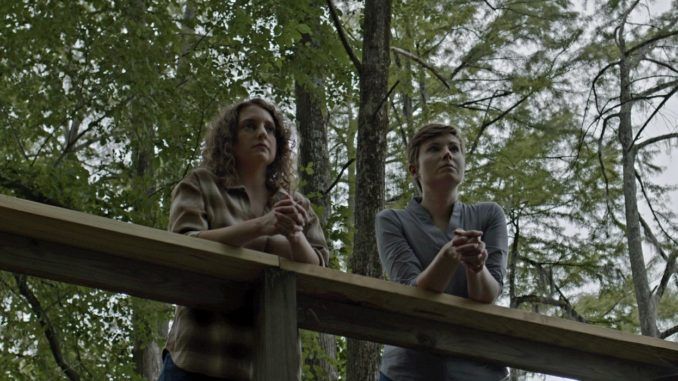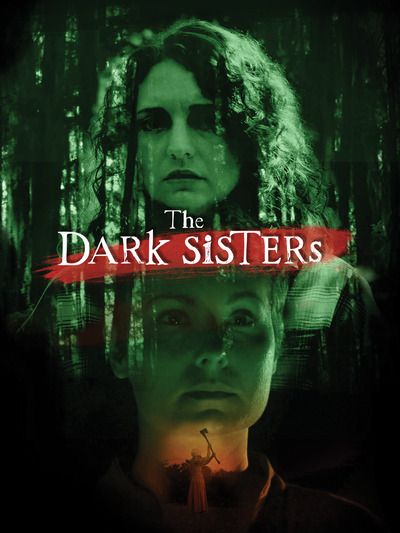
Rating: C
Dir: Richard Bailey
Star: Nicole Fancher, Edna Gill, Kristin Colaneri, Michael Steven Daughtry
I ended up having to watch this twice. It was really a case of having to recalibrate my expectations. The synopsis was as follows: “Sisters Jorie and Kaidon attempt to reconnect over a vacation in the woods after a terrible secret drove them apart. But there is a hidden power in the forest that measures life and death, and this power means to weigh the sister’s future against the dark crime from their past.” This is not wrong: indeed, it’s accurate and succinct, everything a synopsis should be. But I went in expecting something which possessed a considerably greater number of damns about narrative structure. The synopsis arguably tells you more in two sentences than the film does, over its eighty minutes.
To be clear, this is an entirely deliberate stylistic choice by Bailey. I spent the first viewing waiting for the plot to show up. Narrator voice: it did not. Hence, the need to go back and watch it again, putting all such tawdry considerations to one side. I can’t say I particularly enjoyed it any more, but I think it’s a case where a film and I simply choose to go in different directions. To me, a strong story is the core of good cinema. Bailey begs to differ, and if you’re in agreement with him, this has its qualities. It’s all about generating a dreamlike atmosphere, from an opening monologue which discusses… /checks notes crime scenes and hawks.
 This does set the pattern for what follows, in that the spoken words here seem almost artificially stilted, as if they were to be read rather than spoken. This may be deliberate, considering one of the sisters is a writer, and adds to the notion you’re not in Kansas any more. There’s also some animation interludes which have a flavour of Alice in Wonderland to them. I definitely felt I’d gone down the rabbit-hole. You have sisters Jorie (Fancher) and Kaiden (Gill): a dozen years ago, the siblings were part of a religious culture. It did not end well. They have reunited, seeking closure and a way to move past those events. Yet it’s not clear they can – or even if both of them genuinely want to.
This does set the pattern for what follows, in that the spoken words here seem almost artificially stilted, as if they were to be read rather than spoken. This may be deliberate, considering one of the sisters is a writer, and adds to the notion you’re not in Kansas any more. There’s also some animation interludes which have a flavour of Alice in Wonderland to them. I definitely felt I’d gone down the rabbit-hole. You have sisters Jorie (Fancher) and Kaiden (Gill): a dozen years ago, the siblings were part of a religious culture. It did not end well. They have reunited, seeking closure and a way to move past those events. Yet it’s not clear they can – or even if both of them genuinely want to.
Cue meandering, obtuse conversations, and odd occurrences like an attempted robbery by a woman in a wolf mask (Colaneri). It all looks lovely, with crisp photography which sometimes seems almost AI-generated. Yet it feels closer to cinematic therapy, in that it’s always asking, “What do you think?”, with interpretation left in the viewer’s hands. I dunno: beyond an awareness that different people will react differently to traumatic events, I can’t say I took much away from it. This is Arthouse with a capital A, R and T, and unashamed about being so. I can definitely respect that. I do not, however, have to like it.
The film is on Prime Video now, and will also be available to view on AVOD from 1st January.
